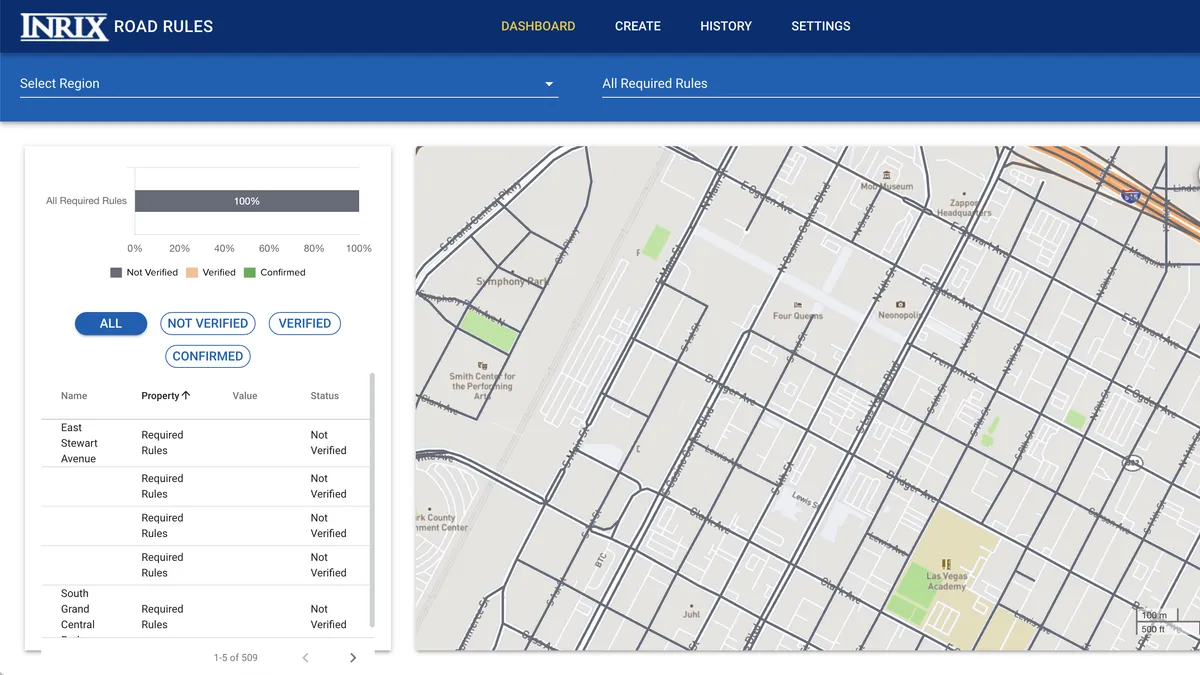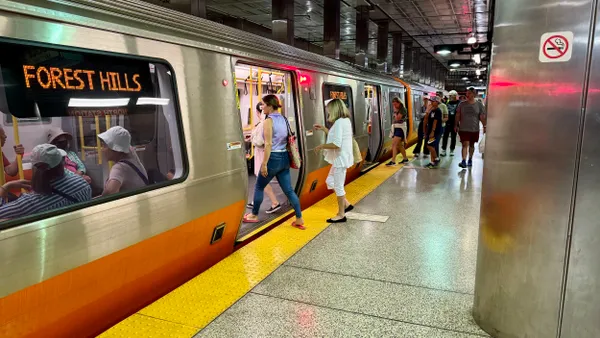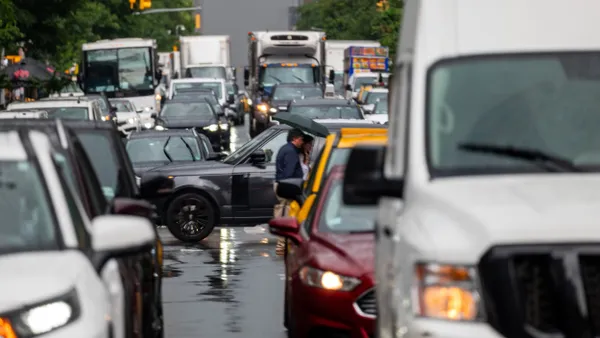Dive Brief:
- INRIX has released an updated version of its Road Rules platform for cities to digitize, manage and communicate rules of roadways, curb space and sidewalks.
- Road Rules is a centralized database for mobility-related rules and restrictions that cities can share digitally with roadway users. The open platform launched last year and centered on rules for autonomous vehicles (AVs). But the new version extends to rules governing other transportation-related regulations, including pick-up and drop-off zones for deliveries or dockless bikes and scooters.
- Four new communities are joining the Road Rules network: Detroit; Miami-Dade County; Turin, Italy; and Calgary, Canada. The platform upgrades were based on feedback from the seven participants in the original launch last year: Austin, TX; Boston; Cambridge, MA; Portland, ME; Regional Transportation Commission of Southern Nevada (including Las Vegas); Transport Scotland (UK); and Transport for West Midlands (UK).
Dive Insight:
Urban transportation is becoming more complicated as new modes enter the scene and city governments grapple with how to govern mobility devices and public space. Having all the regulations available in one central database that can be easily updated helps cities with efficient and comprehensive governance.
"This is something that cities are interested in having," Avery Ash, head of autonomous mobility at INRIX, told Smart Cities Dive. "Historically, the datasets cities worked with have been siloed and oftentimes in formats that aren't particularly easy to update or share."
While platforms like Road Rules do require cities to update information regularly, "the requisite resources to update the digital records is orders of magnitude less than the resources required to update physically recorded rules," Ash said. "Rules on 20th century city infrastructure — that includes repainting roads, striping and reinstalling or adjusting signage — this can be done digitally in a matter of seconds and at hundreds of times less cost than to update physically."
He notes that even cities with more modern data systems in place might not experience the ease of updating information that new platforms provide. Even systems that were created or adopted 10 years ago and still seem relatively innovative — GIS files, for example — do not allow for the easy data updating, sharing and recovery that new platforms provide, he said.
The open data concept lets cities transparently communicate with roadway users. This fosters safe and efficient roadway operations as well as allowing for innovation, such as in the AV space. Open data policies are important to cities for effective data gathering and transmission as well as building trust with the public.
Los Angeles prioritized open data when developing the Mobility Data Specification for managing information about dockless devices. And cities as well as private developers keep open data principles at the forefront of developing mobility as a service (MaaS) platforms that integrate numerous forms of transportation and allow users to plan trips and pay through one app.
INRIX added the new features to Road Rules at cities' request to broaden the scope of roadway management beyond just AVs. Not every community is ready to think about AV adoption and infrastructure compatibility. Yet, these types of roadway management platforms allow cities to more easily transition to an AV-ready landscape when appropriate.
"There is this evolving dialogue around how cities are thinking about data, in particular engaging with lots of new mobility solutions," Ash said. He explained that some cities focus on investments they should make now to prepare for a transportation future 10 to 20 years down the line. "But what we focus on is the steps a city takes now that have an immediate impact on improving... the efficiency of existing modes while still keeping an eye on supporting new mobility that may come down the line... [The platform] can prove an evergreen resource across all the modes."











